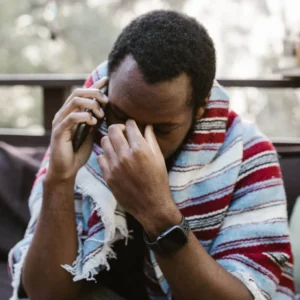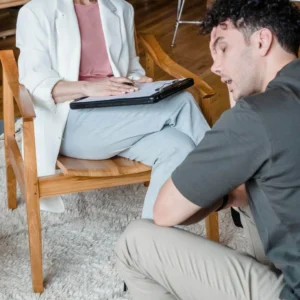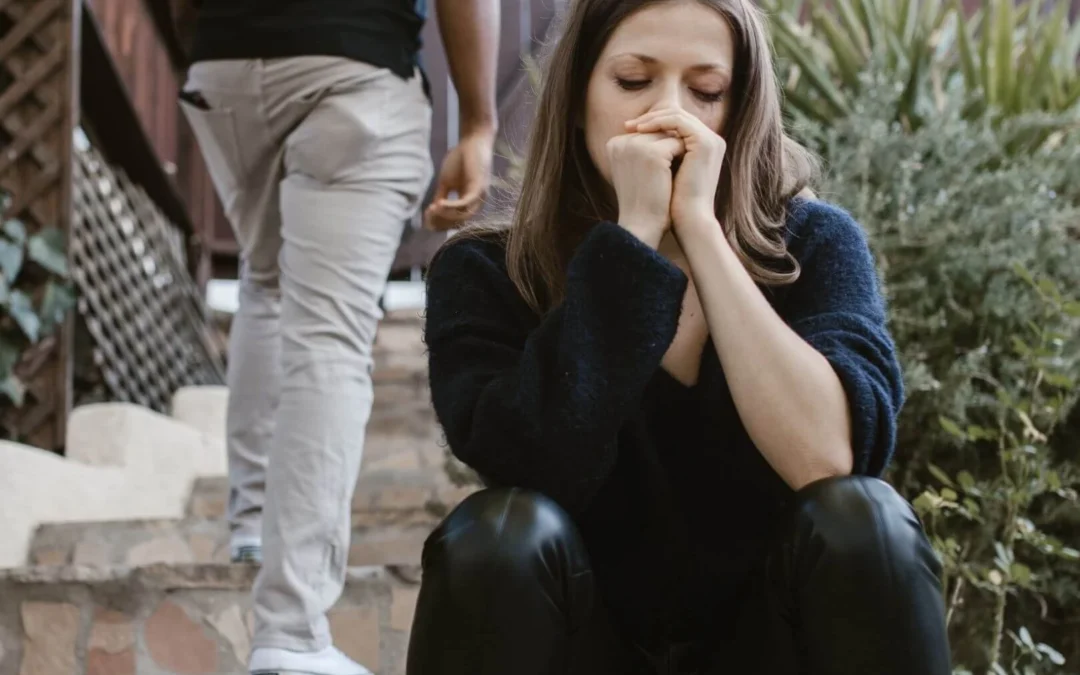When you have unhealed trauma, it can touch every part of your life, including your relationships. This type of trauma can stem from relationships (familial or romantic). Or experiences outside of relationships, such as abuse, neglect, or a traumatic event. Childhood trauma is another common source of unhealed trauma. When you have unhealed trauma, it can show up in many ways.
Communication, intimacy, and trust often become challenging. The issue? These are the cornerstones of any healthy relationship. Unhealed trauma can disrupt these elements, making it difficult for both partners to connect. This fear of being hurt, disappointed, or abandoned is so strong that it can lead to defensive behaviors. Whether that’s putting up walls or lashing out. These reactions usually stem from past experiences and aren’t necessarily related to your current partner. A Fort Worth trauma therapist can help you address these patterns and work towards healing.
Signs of Unresolved Trauma in Relationships

- Difficulty with vulnerability and opening up to your partner.
- Fear of abandonment or rejection, leading to clinginess or jealousy.
- Inability to trust your partner, even when there is no evidence of betrayal.
- Feeling triggered by certain behaviors or situations that remind you of past traumas.
- A constant need for reassurance and validation from your partner.
- Difficulty with emotional regulation, resulting in outbursts or shutting down during conflict.
- Feeling disconnected or numb in the relationship, unable to fully engage on an emotional level.
These are just a few indicators that unresolved trauma could be affecting your relationships. If ignored, it can result in emotional shutdowns or heightened reactivity. Especially when you’re asked to open up or become closer to your partner. Finding ways to address and heal from your past traumas, such as a therapist for relationship trauma in Fort Worth, TX, can help improve your relationships in the present.
How Unhealed Trauma Can Affect Attachment Styles
When unhealed trauma persists, it can profoundly impact your attachment style. Often, manifesting in specific, and often challenging, patterns. They can make one of the three responses more likely:
Anxious Attachment
This attachment style involves always looking for signs that your partner is losing interest. You might be overly focused on their actions and words, searching for any hint of withdrawal. This heightened alertness can cause constant worry and a never-ending need for reassurance that they still care. For instance, you may frequently ask your partner if they love you or question their feelings towards you.
Anxious-Avoidant Attachment
Trauma brings a push-and-pull effect. You might crave closeness and intimacy but then react defensively or withdraw when your partner gets close. This back-and-forth can be confusing for both of you. As it has you seeking connection but also retreating to protect yourself from perceived threats. This can look like constantly breaking up and getting back together or creating distance in the relationship when things start to get too serious.
Avoidant Attachment
With an avoidant attachment style, unhealed trauma often manifests as a strong sense of independence. When your partner pushes you to open up emotionally, you might say you don’t need them or minimize the relationship’s significance. This is usually a defense mechanism to avoid vulnerability and potential pain. An example in your relationship could be avoiding conversations about your emotions or shutting down when your partner tries to have a deeper conversation.
Polyvagal Theory and Trauma Responses
Unhealed trauma also profoundly affects the way your nervous system responds to stress, something Steven Porges’ Polyvagal Theory explains well. Polyvagal theory highlights how our bodies are wired to respond to threats through different physiological states: fight, flight, or freeze. When trauma is unhealed, the body can stay stuck in one of these states, causing heightened reactions in everyday situations. In relationships, these reactions might show up as defensiveness, shutting down, or excessive anxiety. A person with unprocessed trauma may frequently feel unsafe in situations that trigger these fight, flight, or freeze responses, even if there’s no immediate threat. These patterns can cause misunderstandings and hurt feelings in relationships, making it harder to connect with others in a calm, grounded way.
Avoiding Conflict in Relationships

This misinterpretation can trigger a defensive stance, further complicating the relationship dynamics. As relationships deepen, you may feel a heightened sense of anxiety about the level of connection your partner desires. The closer someone gets, the more you’re compelled to push away. This tension between wanting intimacy and fearing it can lead to erratic behaviors, leaving your partner confused and hurt. It’s important to acknowledge these patterns and seek support and healing. Remember, you are not alone, and help is available to navigate these challenging emotions and behaviors.
Maladaptive Coping Techniques
Unhealed trauma often leads to coping mechanisms that seem protective at first but eventually damage relationships. These maladaptive behaviors can block true emotional connection and create more conflict. Frequent blaming or arguing might indicate trauma is affecting your interactions. Arguments often deflect from deeper issues instead of addressing the root cause, creating a cycle of endless conflict. One sign to watch for is a hot physical connection but zero emotional intimacy. Sure, physical touch might cover up deeper issues, but it doesn’t have the emotional depth that builds real closeness and understanding. Spotting this pattern is the first move to creating a balanced relationship where both physical and emotional needs are met. If you find yourself making excuses to spend time alone away from your partner, it might be a protective measure, especially if being vulnerable feels scary.
While personal space is good, dodging your partner all the time can block emotional growth. It’s crucial to talk about why you need some time apart, making sure it doesn’t turn into a way to avoid dealing with unresolved issues. As you work towards healing from your past traumas, it’s essential to communicate openly and honestly with your partner about your struggles and how they may impact the relationship. This can be difficult to do so seeking a Fort Worth trauma therapist can be a valuable resource to guide and support you through this process. Or seeking a therapist for relationship trauma in Fort Worth, TX to better help yourself or your partner understand the impact of unhealed trauma on your attachment styles and relationship dynamics. Another option would be for you and your partner to attend trauma-informed couples therapy in Fort Worth, TX.
How to Recognize Trauma Responses
When encountering challenges in your relationship, consider your partner’s behavior with compassion and understanding. Ask yourself, “Where is the hurt originating?” or “What experiences have led my partner to react this way?” This mindset cultivates empathy and a supportive space where both can feel acknowledged. Recognizing that your partner’s actions might stem from past traumas allows you to respond with patience and care. If your partner seems anxious or avoids emotional talks, think about what might have caused these reactions.
Understand that these behaviors aren’t meant to push you away but are protective mechanisms formed over time. It’s their trauma responses in real-time. By acknowledging their struggles and gently encouraging open dialogue, you can build a stronger, more resilient relationship. Healing from trauma takes time, patience, and support. Focus on your partner’s pain and offer a safe space for vulnerability. A Fort Worth trauma therapist can also provide valuable tools and guidance.
Seeking Trauma Informed Therapy
To move forward and build a lasting emotional connection, couples need a safe bond. Establishing this involves both partners working to understand and address each other’s traumas. It’s crucial to create an environment where both feel valued and secure enough to express their vulnerabilities.
Encouraging open communication and validating each other’s feelings nurtures this bond. Healing isn’t linear and requires patience and compassion. By offering a nurturing space and being present for each other, you set the stage for a resilient relationship. Professional support, like a therapist for relationship trauma in Fort Worth, TX, or trauma therapy in Fort Worth, can guide you toward deeper understanding and connection, making your journey together supportive and transformative.
Navigating Relationships and Trauma

Though it may seem overwhelming, trust in your ability to build a stable and genuine relationship. By focusing on communication, empathy, and patience, you create a healing environment. Seeking support from a Fort Worth trauma therapist or a therapist for relationship trauma in Fort Worth, TX can offer tools and guidance to help you and your partner navigate your emotions. Remember, a resilient and loving relationship is within your reach, and you deserve that profound bond.
Identifying Trauma Indicators with Relationship Trauma Therapy
As you continue to navigate your relationship and heal from past traumas, it’s essential to stay aware of potential indicators of unresolved trauma. These may include difficulty trusting others, feeling constantly on edge or anxious, avoiding emotional intimacy, or struggling with vulnerability. By recognizing these patterns, you can communicate openly with your partner and seek support as needed. At Anew Counseling DFW, we specialize in trauma-informed couples therapy in Fort Worth, TX, and can help you and your partner navigate the impact of past traumas on your relationship. Our compassionate and understanding therapists in Fort Worth are dedicated to supporting you in building a strong, resilient bond with your partner. Our team is well-versed in treating trauma and its impact on relationships, and we are here to help you on your journey towards healing and genuine connection. Take the first step today:
- Fill out our intake form and schedule your free 15-minute consultation.
- Schedule your first appointment to address your relationship trauma.
- Heal, connect, and thrive in a loving and supportive relationship!
Other Therapy Services Offered at Our Fort Worth Therapy Practice
Your relationship trauma may also be impacting other areas of your life, such as your mental health or personal well-being. At Anew Counseling DFW, we offer a range of therapy services to support you in all aspects of your mental health journey. Besides seeking a therapist for relationship trauma in Fort Worth, TX, we offer other therapy services at our Fort Worth, TX-based therapy practice. This includes: Sex Addiction Recovery, Pornography Addiction Counseling, Anxiety Therapy, Depression Therapy, and Couples Therapy. Our team of experienced therapists is dedicated to helping you heal, grow, and thrive in all aspects of your life. If you’re ready to take the first step towards healing, contact us today.

Recent Comments